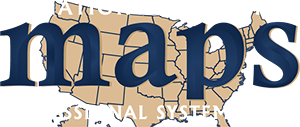
Arbitration
What was originally proposed as a more efficient and cost-effective alternative to protracted litigation is now, in many instances, a frustrating, overly bureaucratic and exorbitantly expensive process. At maps, we offer you a smart alternative to the arbitration machine: an easy, streamlined, cost-effective process to conclude dispute:
Your Case Manager is responsive to you and will eagerly handle all administrative tasks
Our Rules and Fee Schedule are straightforward and transparent
Our charges are never based on the value of the dispute
Our arbitrators charge a reasonable hourly rate, and understand that the parties’ goal is to drive the matter to conclusion expeditiously
How the arbitration process works
Unless otherwise agreed upon by the parties, maps' arbitrations are governed by the Federal Arbitration Act (9 U.S.C.§1et seq.) and maps' Rules and Procedures. The parties can elect to proceed under any published rules of procedure and the arbitration will proceed according to those rules. Although laws vary from state to state, arbitration awards are final and binding on all parties to the arbitration. Please refer to the laws of your state to determine the effect of arbitration and arbitration awards.
The process is much quicker than the judicial process because the parties and/or Arbitrator can limit the number of witnesses and exhibits as well as set parameters on the amount and type of evidence to be considered by the Arbitrator.
High-low arbitration allows the parties to mutually establish, prior to the hearing, a range for the Arbitrator’s award. If the award is above the pre-set maximum, it automatically moves down to the previously agreed upon high figure. Conversely, if the Arbitrator’s decision is below the established minimum, the award moves up to the pre-determined low figure. The Arbitrator will not be aware of the high and low figures that the parties have agreed upon.

